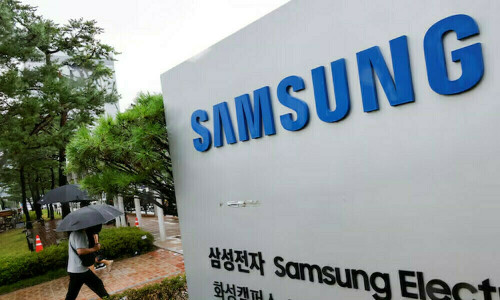Samsung Electronics Adjusts Outlook Amid Tariff Concerns
Samsung Electronics revised its business forecast for the current fiscal quarter, citing potential impacts from US tariff policies that could diminish demand for key products like smartphones.
The tech giant anticipates increased uncertainty in its semiconductor division throughout the year, with smartphone shipments expected to decrease during the second quarter.
“The continued ambiguity surrounding US tariff regulations presents a possible risk of reduced consumer demand,” a Samsung official stated during an analyst call.
The world’s leading memory chip manufacturer noted a slight increase in first-quarter operating profit. This was primarily due to customers purchasing smartphones and commodity chips in anticipation of US tariffs, which helped offset the weaker performance of its artificial intelligence chip operations.
Samsung’s operating profit for the quarter ending in March reached 6.7 trillion won ($4.68 billion), a 1.2% rise compared to the previous year, aligning with earlier projections.
Shares of Samsung, which experienced a challenging year in the previous year, declined by 0.4%, mirroring the overall market trend.
Imposed US tariffs on Chinese goods, along with stricter limits on AI chip sales to China (a key market for Samsung), are expected to negatively influence demand for components like chips and smartphone screens manufactured by the corporation.
The “reciprocal” tariffs proposed by the US administration, with most suspensions in place until July, could potentially affect numerous countries, including Vietnam and South Korea, where Samsung produces smartphones and displays.
Samsung indicated it’s evaluating the possibility of relocating TV and appliance production in reaction to these tariffs.
Strong Mobile Division Performance
The mobile device and network division at Samsung experienced a 23% surge in profits, generating 4.3 trillion won during the stated period. This represents the highest profit level achieved in the last four years, propelled by the recent flagship Galaxy S model incorporating AI functionalities.
Samsung reportedly expedited smartphone production in Vietnam, India, and South Korea in readiness for the implementation of US tariffs.
While the mobile department demonstrated strong results, the chip division’s operating profit notably decreased by 42%, amounting to 1.1 trillion won from the previous year, despite some customer stockpiling efforts.
Samsung reported reduced sales in High Bandwidth Memory (HBM) – a component utilized in AI processors – partially due to US export restrictions on AI chips. Analysts suggest that approximately one-third of Samsung’s HBM revenue originated from China. The business also faces competition from SK Hynix in supplying these chips to Nvidia in the United States.
Samsung clarified that its TV business is anticipated to be less impacted by US tariffs, thanks to its production facilities in Mexico.
SK Hynix recently revealed its second-highest quarterly operating profit for the first quarter, reporting a 158% increase to 7.4 trillion won, fueled by considerable AI-related demand.
Samsung anticipates sustained robust demand for AI servers in the current quarter and has outlined plans to boost its enhanced 12-layer HBM3E chip output during this time.
Revenue increased by 10% to 79.1 trillion won from January to March, in alignment with its previously communicated estimate of 79 trillion won.



Comments (0)
No comments yet. Be the first to comment!
Leave a Comment